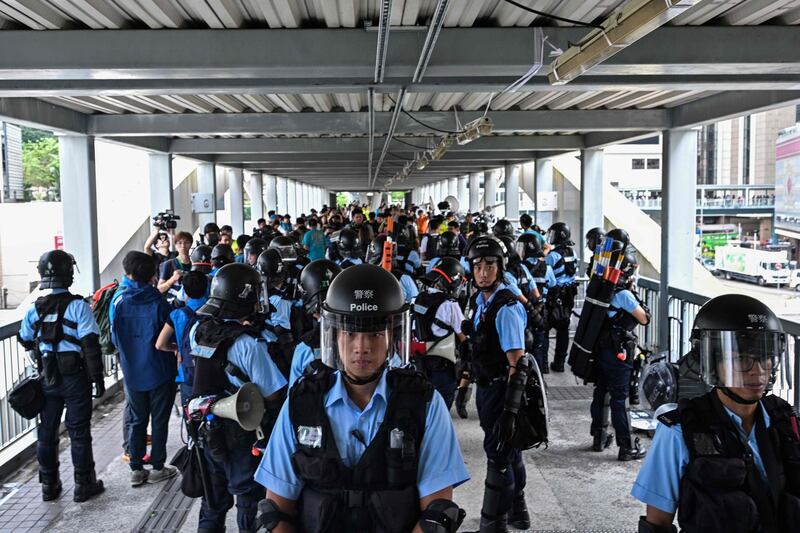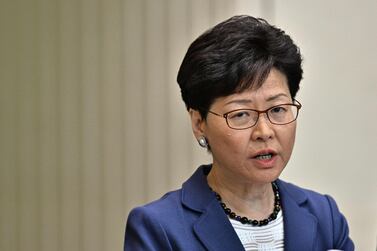Hong Kong authorities have shut government offices in the city's financial district for the rest of the week after Wednesday's protests over an extradition bill that would allow people to be sent to mainland China for trial.
As the island faced growing international pressure over the extradition bill, China voiced support for the the authorities' response to the protests.
"What happened in the Admiralty area was not a peaceful rally, but a riot organised by a group," Chinese foreign ministry spokesman Geng Shuang said on Thursday.
He said the largely peaceful protests were "an act that undermines Hong Kong's stability".
"We support the Hong Kong government's dealing with the situation in accordance with the law."
Police used rubber bullets and tear gas to break up crowds on Wednesday after demonstrators – angry over legislation they say would leave people vulnerable to China's politicised justice system – blocked roads and brought the city to a standstill.
Protest organisers have called for another mass rally on Sunday.
The European Union was the latest grouping to join a chorus of criticism over the bill. The EU "shares many of the concerns raised by citizens of Hong Kong regarding the government's proposed extradition reforms", it said, calling for the rights of Hong Kongers to be respected.
The bloc said the proposed law had "potentially far-reaching consequences for Hong Kong and its people, for EU and foreign citizens, as well as for business confidence in Hong Kong".
Demonstrators who surrounded the city's Legislative Council – its government – on Wednesday forced a postponement of the reading of the bill.
But Hong Kong's pro-Beijing leader Carrie Lam has shown no signs of backing down, and said the protests were "organised riots".
Wednesday's violence left 79 people hurt, with two in a serious condition, in the worst political unrest since Hong Kong was handed to China in 1997.
Students, democracy campaigners, religious groups and business representatives in the semi-autonomous territory have spoken out against the extradition bill.
The government says it is necessary to fix a loophole that prevents Hong Kong from sending criminal suspects back to jurisdictions they have fled – including to mainland China.
But opponents say it would be abused by an increasingly assertive Beijing to pursue its political enemies and to ensnare dissidents in an opaque and politically-motivated justice system.
The international community has also voiced concern.
British prime minister Theresa May said it was vital the proposed law did not breach the UK-Sino agreement signed at the time of the city's return to China in 1997.
Speaking in parliament, she said her government was concerned about the "potential effects of these proposals particularly obviously given the large number of British citizens there are in Hong Kong."
US President Donald Trump told reporters in Washington he could "understand the reason for the demonstration" and said he hoped "it all works out for China and for Hong Kong".






